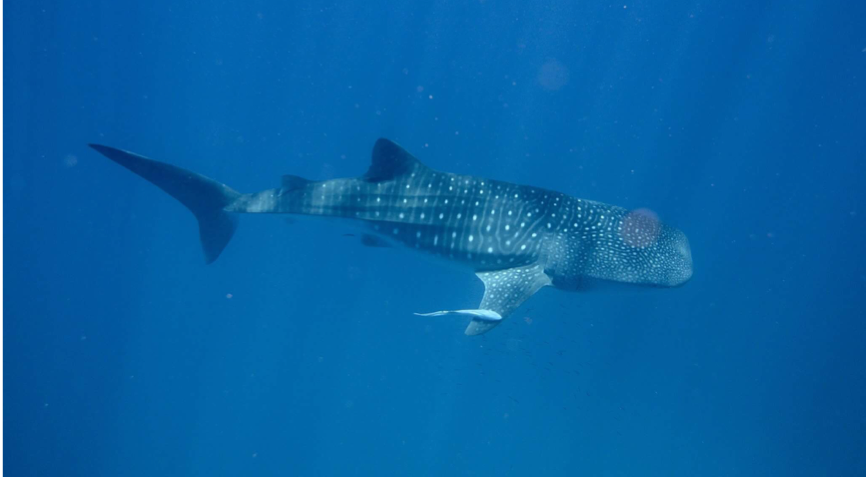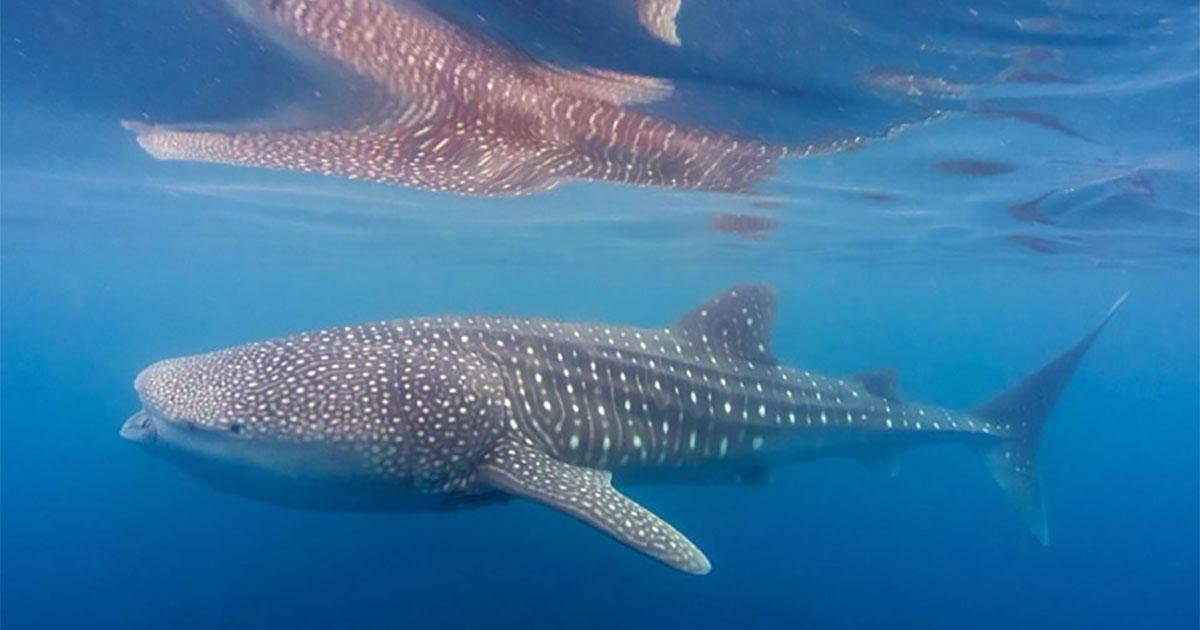The Whale Shark (Rhincodon typus), which is the largest known fish reaching up to 13m long and weighing up to 21 tonnes, is a gentle giant but is listed as endangered on the IUCN Red List of Threatened Species. It is therefore imperative to understand the movement ecology of these docile creatures in order to safeguard them in future.
A recent study by an international team of researchers based in Mozambique, Australia, South Africa and United Arab Emirates have identified key hot spots where whale sharks swim along a 200 km stretch of the Inhambance province in Southern Mozambique. Satellite tagging was used to track the movements of 15 whale sharks for 88 days revealing the area of Praia do Tofo as an important point. Examining sea surface temperatures, chlorophyll-a concentration and water depth revealed these habitat preferences. Interestingly, aerial surveys identified gill nets where whale shark sightings were greatest.
 Photo credits, Catherine Cushenan
Photo credits, Catherine Cushenan
‘This is of concern for regional whale shark conservation, as gill net use is rapidly increasing in the same coastal area where tagged whale sharks spent a lot of time, leading to a higher chance of net entanglement and mortality’, said lead author Christoph Rohner from the Marine Megafauna Foundation.
Furthermore, whale sharks had a high affinity to waters with high Chlorophyll-a implying ‘foraging is a major driver of movements in this region’ added Rohner.
‘The lack of habitat-level protection, coupled with poor regulation of inshore fisheries in Mozambique, is a clear threat to this population’ stated Rohner.
Unfortunately, projections show that close to 50% of the world’s whale shark population has vanished in recent years. The identification of key hotspots across the globe is therefore vital for advancing the future protection of this already endangered species.
By Margaux Monfared, Institute of Marine Sciences, University of Portsmouth (UK)
Journal:
Rohner, C. A., Richardson, A. J., Jaine, F. R. A., Bennett, M. B., Weeks, S. J., Cliff, G., Robsinson, D. P., Reeve-Arnold, K. E., & Pierce, S. J. (2018). Satellite tagging highlights the importance of productive Mozambican coastal waters to the ecology and conservation of whale sharks. PeerJ, 6, e4161.



